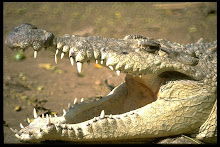Gather 'round, children, and listen to the tale of Major Brad Link, a Wichita, Kansas hockey fan who got a rare chance to live a long-abandoned dream in one of many stories that ends with the phrase "Only in the CHL."
Ah, the Central Hockey League. In the mid-1990's, it was the bottom of the barrel when it came to professional hockey leagues in North America. This was not long after the first major expansion/merger (this time with the Southern Hockey League, I think). At that point, the CHL had two divisions: a Western division that went as far south as Fort Worth, Texas, and as far north as Topeka, Kansas. The Eastern division gathered five teams in Georgia, Alabama, and Tennessee. Who'd have thought there would one day be professional hockey teams called the Topeka Scarecrows, Huntsville Channel Cats, and the immortal Macon Whoopee. (At one point in time, their logo featured a bird and a bee. Clever)
Major Link was a fan of Wichita's Thunder, a former two-time CHL champ that had made it to the championship series and been swept by the Columbus (GA) Cottonmouths the year before. As was the case with many Wichitans, Link was also stationed at the McConnell Air Force Base, famous for their B2 Bombers and other operational U.S. Air Force crafts. During the off-season, Link invited former Thunder player and current head coach Bryan Wells to take a ride in a fighter jet from time to time. Wells appreciated the gesture and looked for an opportunity to repay Link for his generosity.
Then, during the season, Wichita's backup goalie was called up on an emergency basis to the IHL's Kansas City Blades, leaving Wichita with only one masked man. Now, Link had played goal in college twenty years ago, so Wells thought the Major might get a kick out of traveling with the team. He'd dress for games and watch from the bench, taking some practice shots before the game and during team practices. But he'd never have to worry about getting into a game. Wichita's backup (Greg Smith, I believe. When asking about a backup Wichita netminder in the '90s, Smith is always a good guess) should be back soon, and starter Lance Leslie would be able to handle the workload until Smith got back. (Side note: In my mind, I remembered Leslie being awesome. Turns out, that wasn't until the next season, as this year he finished with an .875 save percentage)
Then came the home game against the Cottomouths. The same Cottomnouths that had not only swept, but utterly trounced the Thunder in the Final a year before. They were still pretty dang good, too. My dad and I were at the Big Brown Barn that night, and the filthy snakes were handing it to our boys pretty good again. About halfway through the second period, the Thunder were down 5-1. Our guys played like a prizefighter who is already out on his feet, waiting for the inevitable knockout blow to make it official. There wasn't much going on. And then, just when it looked like things couldn't get any worse, Leslie got hurt. He was done for the night.
(Wow. Side note: "Gonna Fly Now" from Rocky just came on my iPod. This is awesome)
The crowd grew eerily silent. Then, we realized what was coming next: The 41-year-old rookie was going to have to come in and guard the net for the last half of the game. Quiet applause became raucous cheering as #40 Link skated slowly toward the goal, wearing old beat-up practice pads and a red, white, and blue goalie mask. It was the old man against the defending champs.
One shot later, it was 6-1 Columbus. The next shot they took was technically a save, though really it just bounced off Link's mask and into the corner. The Major looked awfully slow. (Understandably, of course) The good vibes were gone, and we all just started to feel sorry for the poor guy.
Something strange happened with that mask-save, though: the old guy in the next seemed to realize that he could actually stop the puck. And he stood a little bit taller. He skated from side to side to rough up the ice around his crease. He started to look like a goalie.
And then, he started to play like one. The next save was no accident, as Link grabbed a wrist shot out of mid-air. He held the puck out, as if to show his teammates, "No worries, I have it." The crowd cheered. Thunder players tapped their sticks against the boards in salute. The game may have been out of reach, but suddenly they decided to play as if there was something at stake. The defense tightened. We started hitting again. When they pushed, we pushed back. Our defensemen kept their positions. We blocked shots. And when one got through, Major Brad Link was there. It wasn't always pretty, but he found a way to make the save. The crowd got louder and louder with every save the rookie made.
Major Link didn't let in another shot all night. According to Link's official stats page at hockeydb, he stopped 9 of 10 in 31 minutes of work. He never saw another professional hockey game. The team brought in another professional goalie to hold down the fort until Smith came back. And, since this was the minor minor leagues, we ended up using six goalies that year. Of all six, though, the only one who stopped 90 percent of the shots he faced all season, the only one who allowed fewer than 3 goals per 60 minutes, was the 41-year-old hometown rookie in the beat up pads and the red, white, and blue.
Only in the CHL.
